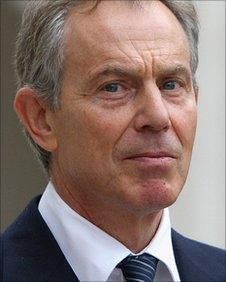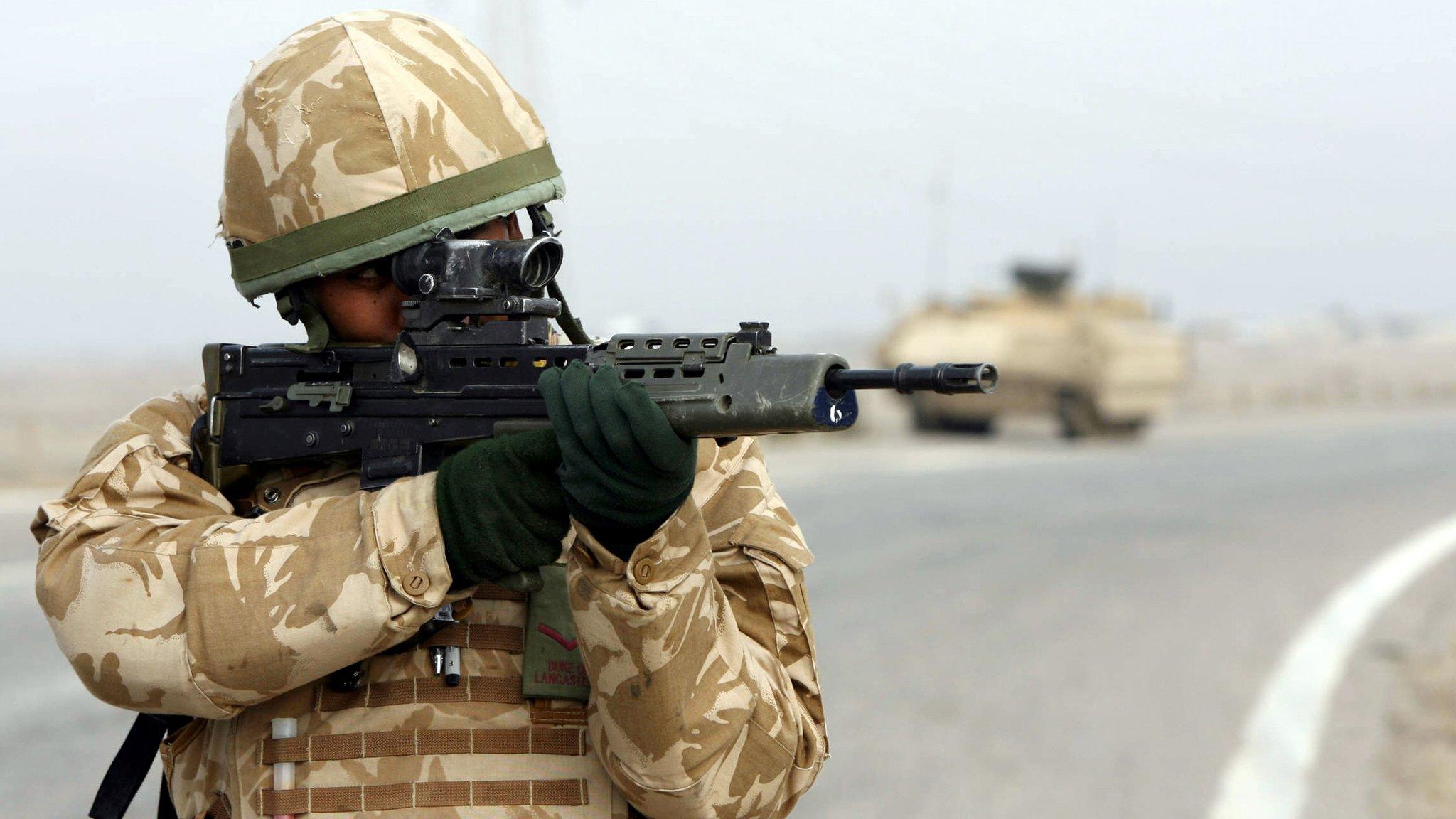The questions Tony Blair faces at Chilcot Iraq inquiry
- Published

Tony Blair first appeared before the committee in January 2010
The former British Prime Minister, Tony Blair, is being recalled on Friday to give more evidence to the Iraq Inquiry. BBC correspondent Peter Biles suggests some questions which the Chilcot committee may want to ask.
1) What did Tony Blair say to George W Bush in his confidential notes to the former US President?
The problem is this material has not been declassified by the Cabinet Office despite Sir John Chilcot's appeals to the Cabinet Secretary Sir Gus O'Donnell. It means the notes have been seen by the Iraq Inquiry committee but are not allowed to be published. They cannot therefore be referred to directly during questioning of Mr Blair. The documents are said by the inquiry to provide "important, and often unique, insights into Mr Blair's thinking and the commitments he made to President Bush, not reflected in other papers".
2) Why did Tony Blair's public comments about United Nations backing for war in Iraq in early 2003 appear to be at odds with the legal advice from his Attorney General Lord Goldsmith?
Earlier this month, Lord Goldsmith presented further evidence to the inquiry in the form of a written statement. He said he considered Mr Blair's words in the House of Commons and in a BBC TV interview in January and February 2003 to be incompatible with the advice he had given the prime minister. Lord Goldsmith added that he was "uncomfortable" about Mr Blair's statements about the legality of invading Iraq.
3) Was there an over-reliance on "fragmentary intelligence" when deciding to go to war?
Much has been said about the intelligence that was gathered before the March 2003 invasion of Iraq. The former head of MI5, Baroness Manningham-Buller, told the inquiry in July that the intelligence was "not substantial enough". "If you are going to go to war, you need a pretty high threshold, to decide on that," she told the inquiry.
4) Did the British government falsely blame France for the collapse of talks on a second UN resolution in March 2003?
Tony Blair was questioned about this a year ago. He denied the charge that Britain had used a possible French veto as an excuse to withdraw the UN resolution in order to meet the US military timetable for war. However, Mr Blair's former EU adviser, Sir Stephen Wall, told the inquiry that Mr Blair had played "the anti-French card" at a time when the British government was "fighting for its life".
5) Why were so few of Tony Blair's internal meetings on Iraq minuted by Downing Street officials in the build-up to war?
The committee is curious to know much more about the workings of Tony Blair's "sofa-style" government and his ad hoc committees. It was suggested at earlier evidence sessions that there was "a big void" and a lot of missing papers during the crucial year prior to March 2003. It has been claimed that only one of thirty phone calls between Mr Blair and Jack Straw was minuted.
6) Having published his memoirs, does Tony Blair have any further personal reflections on Iraq?
Last year, Mr Blair said he bore responsibility but not regret for removing Saddam Hussein. In his book, he has since explained that he felt sick with anguish and anger when asked by Sir John Chilcot: "Do you have any regrets?" He admits his answer to the Inquiry was incomplete. The committee may want him to explain his innermost feelings in more detail.
- Published21 April 2015

- Published18 January 2011
- Published8 December 2010